Blaxploitation Education: Super Fly
In which we root for a drug dealer as he gets one over on The Man.
Super Fly
Written by Phillip Fenty
Directed by Gordon Parks, Jr.
1972
Blaxploitation movies aren’t exactly known for wholesomeness. That is, they often celebrate lawlessness as long as it’s in service of standing up to The Man. In previous entries in this series, we’ve seen Black cops who have the best interests of the community at heart and a Black private dick who puts his own safety on the line to help an innocent kidnapping victim. Characters have operated on the fringes of the law, but they’ve mostly stood up for what was right. However, with Super Fly, we seem to have taken a bit of a turn, with a focus on a hardened criminal who’s out for nothing but his own interests.
It may be unfair to try to hold this movie or others in the genre up to a standard that doesn’t apply to movies featuring people of other races. After all, we don’t complain that The Godfather is a negative portrayal of white people or wonder why the Corleones put their own interests ahead of their community. So it’s probably best to take this movie at face value. It’s about a criminal navigating a shady underworld and trying to get ahead, which makes for a pretty interesting story.
However, there’s a bit more going on here than just a celebration of criminality. Characters talk about doing what they have to so they can get ahead, and while they’re unrepentant about the people they’ve had to step on along the way, they feel like they’ve had no choice due to the structural racism of American society. One character sums it up by saying, “I know it’s a rotten game, but it’s the only one The Man left us to play. That’s the stone cold truth.”
The story here involves Priest (Ron O’Neal), a drug dealer who has decided to get out of the game. He and his partner Eddie (Carl Lee) have saved up $300,000 between them, so Priest has come up with a scheme in which he plans to use that money to purchase 30 kilos of cocaine and spend a few months moving it. Once they’ve accumulated a million dollars, they can get out of town and live easy for the rest of their lives. Of course, it won’t be as simple as Priest might think, since other forces that run criminal enterprises in New York City aren’t exactly ready to let them just walk away.
First, Priest has trouble convincing his source, an older guy named Scatter (Julius Harris) to get the drugs for him. Scatter has tried to get out of the game himself, and he’s afraid that this will put him at risk, and sure enough, his worries are proven right. Then, Priest and Eddie run afoul of the cops, who seem to be investigating drug crimes at first but turn out to be gathering information so they can lean on dealers and solicit huge bribes to allow them to keep operating. And it turns out that the corruption goes all the way to the top, with the police commissioner being the one who runs the drug business in the city. It’s a rotten system through and through, one that’s built to keep people like Priest generating money for others and subjugating the lowest rungs of society.
Through all of this, Priest cuts a pretty compelling figure, with Ron O’Neal coming off as a hard-edged guy who’s willing to do whatever he needs to to protect himself. Early on, he threatens one of his underlings, a guy named Fat Freddie (Charles McGregor), saying that unless he gets the money he owes, Priest will put his wife out on the street. This ends up causing no end of trouble for Priest, since even though Freddie manages to get the money, he ends up getting taken in by the cops. He eventually cracks during “questioning,” giving up Priest as his boss and providing the corrupt cops with the chance to solicit bribes. Freddie then ends up dying in an attempt to escape; he makes for a pretty pathetic figure, a hapless guy who gets ground up in the gears of the machine that keeps the drug trade in the city running.
The movie has a cool vibe, with lots of 70s fashion. Priest stands out even among the various pimps and drug dealers with his long, straight hair (one guy calls him “white-looking” and gets punched for it), his long moustache, and his pointed sideburns, as well as a variety of hats and wide-collared jackets. He also gets a lengthy sex scene in a tub with his girlfriend, one that’s much steamier than what we saw in Shaft. He’s meant to be a smooth badass, but he often comes off as a bit desperate, possibly because he’s constantly snorting cocaine. He manages to put one over on everyone who stands against him, but only barely. While he seems to get away at the end, there’s a bit of a question about what he’s going to do next and whether he’ll be able to succeed on his own or will just fall back into the same criminal activities.
His coolness is also kind of undercut by the soundtrack, which is full of banger after banger by Curtis Mayfield. He and his band even appear on screen in one scene to perform “Pusherman,” and he provides a driving, funky rhythm to Priest’s life of crime. However, the lyrics of the songs call his activities into question, noting that he’s not exactly benefiting society by flooding the streets with dangerous substances. The song “Freddie’s Dead,” which appears on the soundtrack album but not in the actual movie, is an ode to the poor guy who got chewed up and spat out by Priest and the rest of the system. Mayfield’s music adds a whole separate layer to the movie, making it much deeper than just a celebration of criminality and forcing us to reckon with the ongoing societal issues that the plot of the movie only gives a glancing notice to.
With this movie, it’s interesting to watch the ongoing development of the Blaxploitation genre, since it’s a slightly different focus on urban Black culture than what we had seen before. It provides another hero who stands up against The Man, although he’s out for himself, and he doesn’t seem to be interested in correcting any of society’s ills or even acting positively toward anyone else. Even though he might seem to excuse his actions by saying that he’s just playing the hand he’s been dealt, the movie is smart enough to recognize that he’s ultimately a negative force in the world. We’ll see if future films have the same level of perspicacity or if they lean in the direction of celebrating unethical behavior. Whatever the case, I’m always happy to see Whitey get taken down a peg, and we’ll definitely be getting more of that.

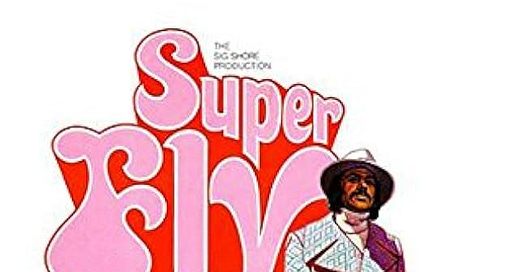



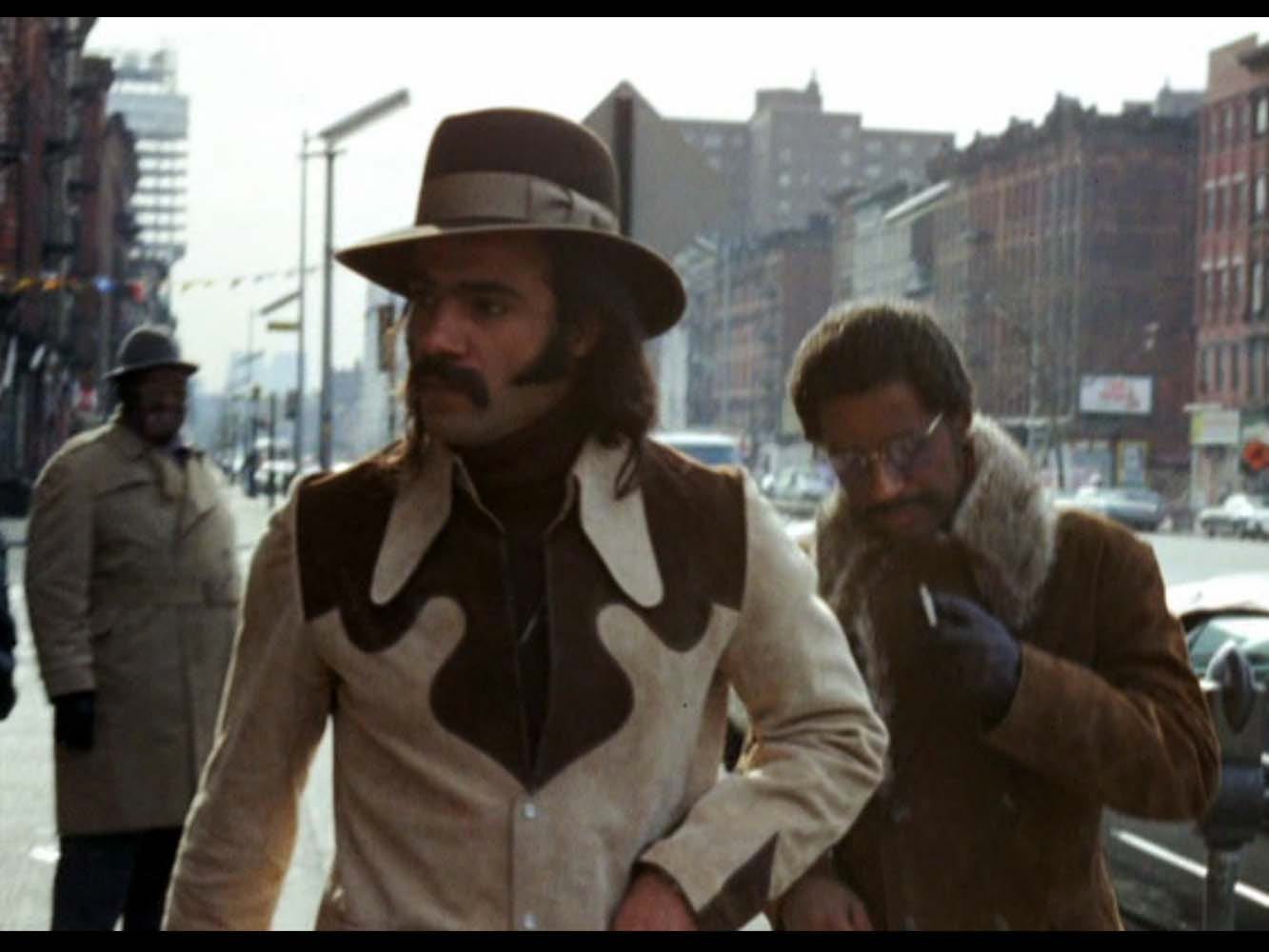
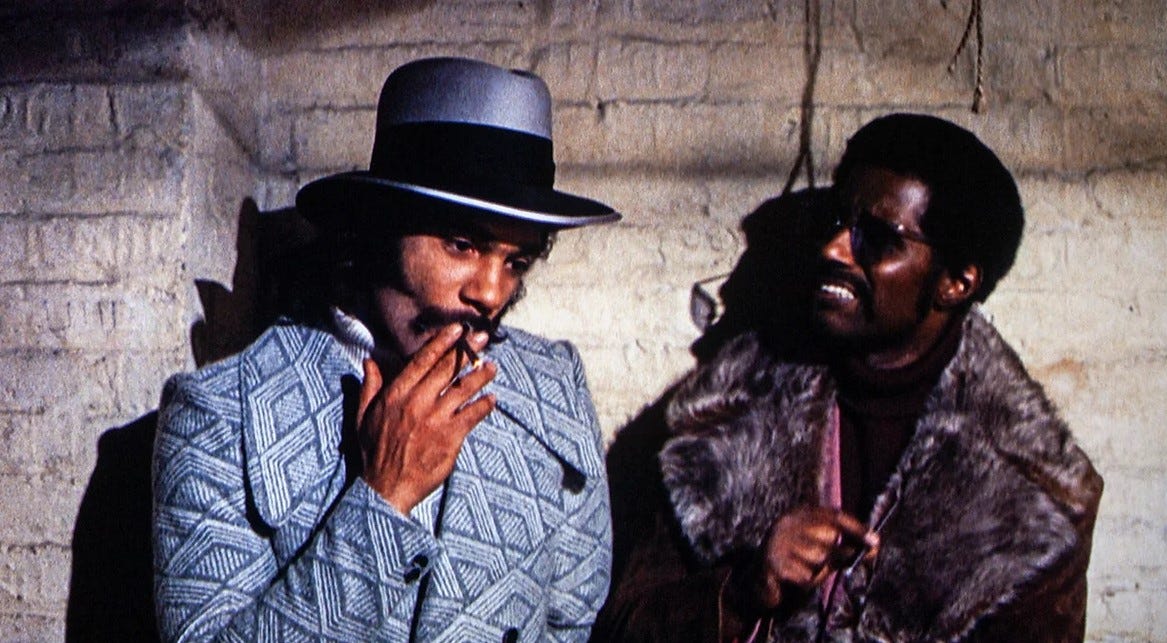
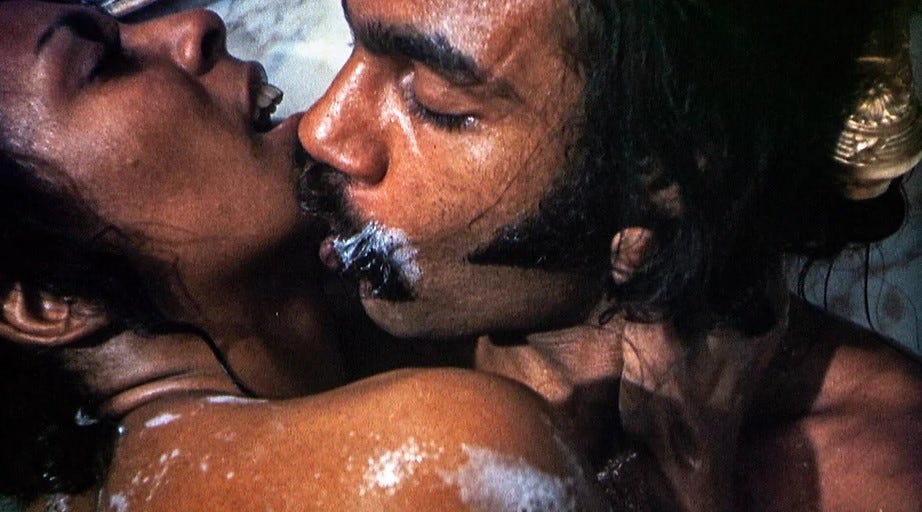
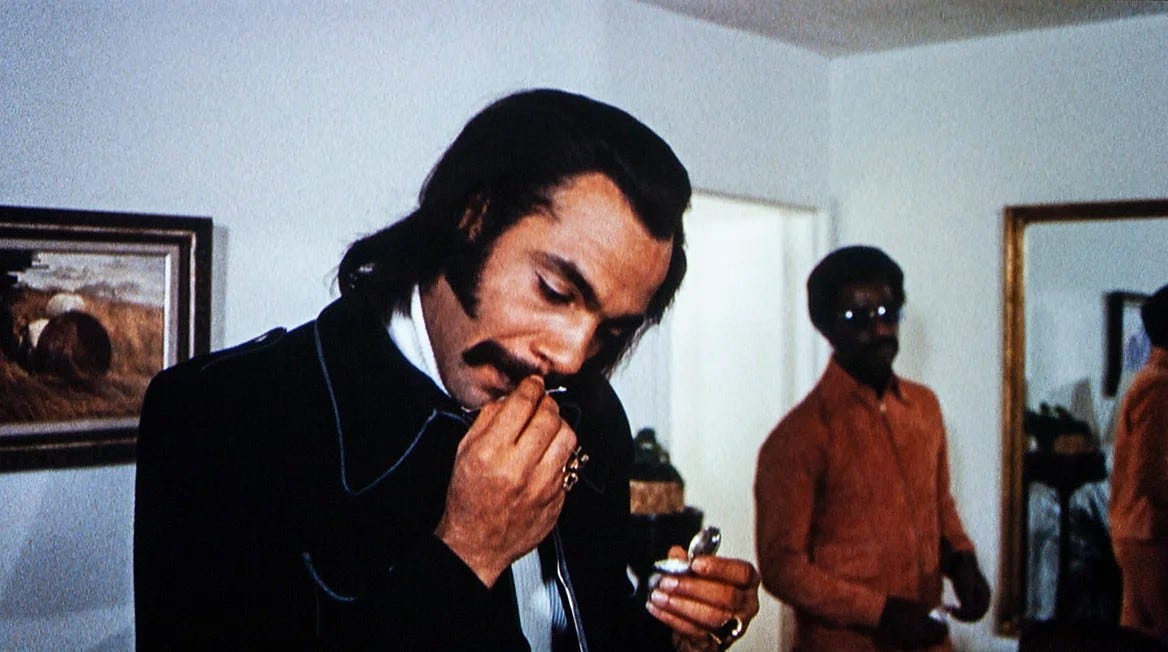
Most movies in this genre had musical soundtracks that were far superior to the actual movies. Curtis Mayfield's score for this one is an absolutely iconic one for the whole genre and one of the greatest things he ever wrote.